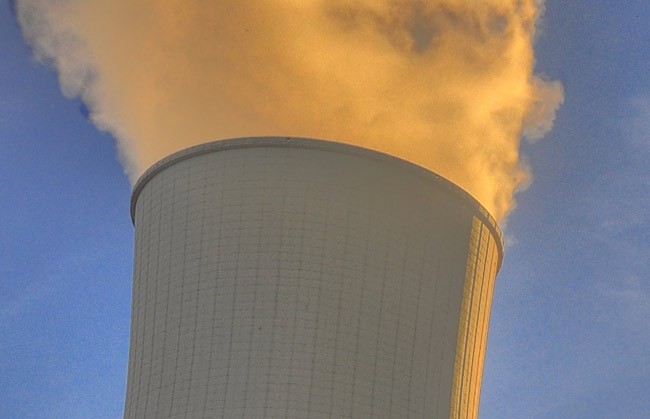
An appeals court Wednesday overturned a decision by Gov. Rick Scott and the state Cabinet that could have helped clear the way for Florida Power & Light to add two nuclear reactors in Miami-Dade County.
A three-judge panel of the 3rd District Court of Appeal issued a 28-page ruling that sided with a challenge filed by parties including the city of Miami and Miami-Dade County. The challenge targeted a decision made in 2014 by Scott and Cabinet members, who review power-plant projects while acting as what is known as the state’s “siting board.”
[FPL provides power to most residents and businesses in Flagler-Palm Coast. Local residents have been paying a monthly charge for the unbuilt Turkey Point nuclear reactors for years, under a law that enables utility companies to charge customers for such projects decades ahead of time, even though the project may never get built.]
The appeals court found that the siting board made a series of errors in considering FPL’s proposal to add the reactors at the utility’s Turkey Point complex. The court said the board, in part, failed to apply the city of Miami’s land-development regulations and erred by thinking it did not have the power to require FPL to install transmission lines underground. Also, it said the board misinterpreted a county ordinance related to trying to protect the eastern Everglades.
Wednesday’s ruling, written by Judge Ivan Fernandez and joined by judges Barbara Lagoa and Kevin Emas, sent the case back to the siting board “for further review consistent with local developmental regulations, comprehensive plans and the applicable environmental regulations.”
FPL spokesman Peter Robbins said in an email on Wednesday that the company is reviewing the court’s opinion and its legal options.
“The Siting Board adopted a well-reasoned decision of the administrative law judge and issued the certification for these critically important electrical transmission facilities,” Robbins wrote. “We are disappointed by the Court’s decision reversing the Siting Board and remanding the matter back to the Siting Board for further proceedings on the transmission facilities.”
Approval by the siting board is a key state step for power-plant projects. An administrative law judge recommended approval of the FPL project before Scott and the Cabinet signed off on it.
FPL has worked for years on plans for the nuclear reactors, though it has left open the possibility it will not build the costly project. On its website, for example, FPL says it is “creating the option to build two new nuclear units at our existing Turkey Point facility.”
Wednesday’s ruling also came as FPL deals with a major controversy related to its already-existing nuclear plant at Turkey Point. A study released on March 7 indicated tritium — a radioactive isotope of hydrogen — has leaked from Turkey Point’s cooling canals into groundwater and toward Biscayne National Park and the Biscayne aquifer.
–News Service of Florida
![]()
Click to access florida-v-fpl.pdf





























Wishful thinking says
Bravo to the 3rd DCA.. They have made many rulings in favor of we the people . My friend and I wrote a pro se brief in 1989 (,we paid an attorney to do oral argument and we won! One of the best courts we have in FL
Veteran says
Why don’t we cover the state with solar panels and wind turbines. Eliminate nuclear power and we can go back to candlelight.
Lin says
Does anyone in these nuclear power plants or the governing bodies, utilities, know what they are doing? Radioactive isotopes leaking in Florida into groundwater, lead in Flint? What turkeys. And they want to build more? All these government layers and no one to prevent leaks. I have to stop reading the news before I go to sleep. Back to Grantchester Pbs Masterpiece theater.
Sherry says
Florida is the SUNSHINE state! We should have solar panels on each and every roof top!!! The only reason we don’t is that the FPLs of our state can’t figure out a way to charge use for sunshine. If they could turn a big profit. . . you bet ya they would have had solar power in mass production year ago!
SAY NO TO NUKES! Highly toxic Nuclear Waste remains extremely dangerous for hundreds of years and cannot be really safely stored.
Veteran says
Sherry, I can’t afford the $25,000 minimum to put solar panels on my roof and doubt many others can either!